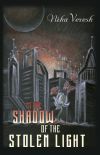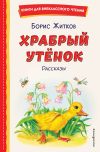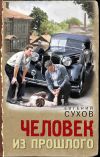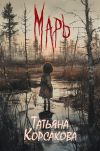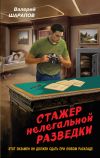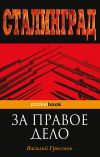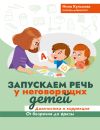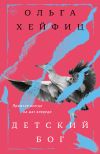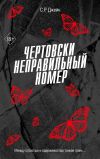
Автор книги: Михаил Сарапов
Жанр: Иностранные языки, Наука и Образование
Возрастные ограничения: +16
сообщить о неприемлемом содержимом
Текущая страница: 7 (всего у книги 20 страниц) [доступный отрывок для чтения: 7 страниц]
III. Statement of the Late Julia Hetman, through the Medium Bayrolles
(Cвидетельство покойной Джулии Хетмен, /полученное/ через посредство медиума Бэйроулза)
I had retired early and fallen almost immediately into a peaceful sleep (я легла спать рано и почти немедленно уснула спокойным сном: «впала в мирный сон»), from which I awoke with that indefinable sense of peril (от которого я пробудилась с тем неопределенным чувством /грозящей/ опасности; to awake) which is, I think, a common experience in that other, earlier life (которое, я думаю, являлось обычным в той другой, более ранней жизни; experience – впечатление, переживание). Of its unmeaning character, too, I was entirely persuaded (я была полностью убеждена в его необоснованности: «незначащем характере»; to persuade – убеждать), yet that did not banish it (но оно, тем не менее, не отступало: «и все же это не изгоняло его»). My husband, Joel Hetman, was away from home (моего мужа, Джоэла Хетмена, дома не было: «/он/ был вдали от дома»); the servants slept in another part of the house (слуги спали в другой части дома). But these were familiar conditions (но все это было вполне обычно: «это были привычные условия»); they had never before distressed me (никогда раньше это меня не беспокоило; to distress – причинять страдание, мучить, терзать). Nevertheless, the strange terror grew so insupportable (тем не менее, этот странный ужас стал настолько невыносим) that conquering my reluctance to move I sat up and lit the lamp at my bedside (что, хотя мне и не хотелось шевелиться, я села и зажгла лампу возле кровати; to conquer – преодолеть, побороть; reluctance – неохота, нежелание). Contrary to my expectation this gave me no relief (вопреки моим ожиданиям, от этого мне легче не стало: «это не дало мне облегчения»); the light seemed rather an added danger (свет, скорее, казался добавочным риском; danger – опасность; угроза; риск), for I reflected that it would shine out under the door (так как, подумала я, его будет видно из-под двери; to reflect – раздумывать, размышлять; to shine – светить, освещать), disclosing my presence to whatever evil thing might lurk outside (выдавая мое присутствие неважно какому злу: «злой вещи», что могло затаиться снаружи; to lurk – скрываться в засаде; прятаться; оставаться незамеченным; притаиться). You that are still in the flesh, subject to horrors of the imagination (вы, те, кто еще во плоти, жертвы ужасов воображения; subject – тема, предмет разговора; объект; подчиненный, находящийся в подчинении), think what a monstrous fear that must be which seeks in darkness security from malevolent existences of the night (думаете, каким же чудовищным должен быть тот страх, что /заставляет/ искать укрытия в темноте от злобных созданий ночи; security – безопасность; existence – существование; существо, создание). That is to spring to close quarters with an unseen enemy (это означает, что вы вплотную сближаетесь с невидимым врагом; to spring – прыгать; бросаться; выступать; close – близкий, тесный; близко расположенный; quarter – место, местность; close quarters – непосредственное соприкосновение; to spring to close quarters = to come to close quarters – сближаться /с противником/; столкнуться лицом к лицу) – the strategy of despair (стратегия отчаяния)!

I had retired early and fallen almost immediately into a peaceful sleep, from which I awoke with that indefinable sense of peril which is, I think, a common experience in that other, earlier life. Of its unmeaning character, too, I was entirely persuaded, yet that did not banish it. My husband, Joel Hetman, was away from home; the servants slept in another part of the house. But these were familiar conditions; they had never before distressed me. Nevertheless, the strange terror grew so insupportable that conquering my reluctance to move I sat up and lit the lamp at my bedside. Contrary to my expectation this gave me no relief; the light seemed rather an added danger, for I reflected that it would shine out under the door, disclosing my presence to whatever evil thing might lurk outside. You that are still in the flesh, subject to horrors of the imagination, think what a monstrous fear that must be which seeks in darkness security from malevolent existences of the night. That is to spring to close quarters with an unseen enemy – the strategy of despair!
Extinguishing the lamp I pulled the bed-clothing about my head (потушив лампу, я натянула покрывало на голову; bed – кровать, постель; clothing – покрытие, покрывающий слой; покрывало) and lay trembling and silent, unable to shriek, forgetful to pray (и молча лежала, дрожа, не в состоянии закричать, забыв о молитвах; forgetful – забывчивый; забывающий; to pray – молиться). In this pitiable state I must have lain for what you call hours (в таком плачевном состоянии я пролежала, должно быть, часы, как вы их называете; pitiable – достойный жалости, сожаления; презренный, жалкий; to lie) – with us there are no hours, there is no time (для нас часов нет, времени не существует).
At last it came – a soft, irregular sound of footfalls on the stairs (и наконец, он послышался: «пришел» – тихий, неритмичный звук шагов на лестнице; soft – мягкий; тихий; приглушенный; irregular – неправильный, не отвечающий нормам; неровный; нерегулярный, неравномерный)! They were slow, hesitant, uncertain (они были медленные, колеблющиеся, неуверенные), as of something that did not see its way (словно такого существа, которое ничего перед собой не видит: «словно чего-то, что не видит своего пути»); to my disordered reason all the more terrifying for that (для моего помутненного рассудка тем более пугающие поэтому; disordered – спутанный, беспорядочный; all the more /so/ – тем более), as the approach of some blind and mindless malevolence to which is no appeal (словно приближалось какое-то слепое и неразумное зло, к которому взывать бесполезно; malevolence – злорадство; злоба; враждебность; appeal – просьба, мольба). I even thought that I must have left the hall lamp burning (я даже подумала, что я наверняка не потушила лампу в холле: «оставила лампу холла горящей») and the groping of this creature proved it a monster of the night (и то, что это создание пробиралось наощупь, доказывало, что это ночной монстр; to grope – ощупывать, идти ощупью). This was foolish and inconsistent with my previous dread of the light (это было глупо и противоречило моему страху света перед этим; inconsistent – несовместимый, нелогичный; previous – предыдущий; предшествующий), but what would you have (но что вы /от меня/ хотите)? Fear has no brains; it is an idiot (у страха нет разума; это идиот). The dismal witness that it bears (ужасы, что он видит; dismal – мрачный; унылый; тягостный, давящий; зловещий; to bear witness – давать показания) and the cowardly counsel that it whispers are unrelated (и трусливые советы, что он нам шепчет, меж собой не связаны; to relate – устанавливать связь, определять соотношение; unrelated – несвязанный, несоотносимый). We know this well (мы знаем это хорошо), we who have passed into the Realm of Terror (те, кто перешел в царство ужаса), who skulk in eternal dusk among the scenes of our former lives (кто прячется в вечных сумерках среди теней наших прошлых жизней; to skulk – красться, подкрадываться; прятаться, скрываться, затаиваться; scene – место происшествия, события), invisible even to ourselves and one another (невидимые даже сами для себя и друг для друга), yet hiding forlorn in lonely places (и все же, /будучи/ одинокими, скрывающиеся в заброшенных уголках: «одиноких местах»; forlorn – /книжн./ несчастный; одинокий, покинутый); yearning for speech with our loved ones, yet dumb (тоскующие по беседе со своими любимыми/возлюбленными, но немые), and as fearful of them as they of us (и боящиеся их так же, как и они нас). Sometimes the disability is removed, the law suspended (иногда /проклятие/ невидимости снимается, действие этого закона приостанавливается: «закон приостанавливается»; disability – неспособность; to remove – передвигать, перемещать; снимать): by the deathless power of love or hate we break the spell (бессмертной силой любви или ненависти мы разрываем заклятие; spell – заклинание; чары) – we are seen by those whom we would warn, console, or punish (нас видят те, кого мы хотим предостеречь, утешить или наказать). What form we seem to them to bear we know not (в каком обличье мы предстаем им, мы не знаем; form – форма; внешний вид; to seem – казаться; представляться; to bear – нести; иметь); we know only that we terrify even those whom we most wish to comfort (мы только знаем, что мы приводим в ужас даже тех, кого мы больше всего пытаемся утешить), and from whom we most crave tenderness and sympathy (и от кого мы больше всего жаждем тепла и сочувствия; tenderness – ласка, доброта; чуткость, отзывчивость; sympathy – сочувствие; сострадание; симпатия).

Extinguishing the lamp I pulled the bed-clothing about my head and lay trembling and silent, unable to shriek, forgetful to pray. In this pitiable state I must have lain for what you call hours – with us there are no hours, there is no time.
At last it came – a soft, irregular sound of footfalls on the stairs! They were slow, hesitant, uncertain, as of something that did not see its way; to my disordered reason all the more terrifying for that, as the approach of some blind and mindless malevolence to which is no appeal. I even thought that I must have left the hall lamp burning and the groping of this creature proved it a monster of the night. This was foolish and inconsistent with my previous dread of the light, but what would you have? Fear has no brains; it is an idiot. The dismal witness that it bears and the cowardly counsel that it whispers are unrelated. We know this well, we who have passed into the Realm of Terror, who skulk in eternal dusk among the scenes of our former lives, invisible even to ourselves and one another, yet hiding forlorn in lonely places; yearning for speech with our loved ones, yet dumb, and as fearful of them as they of us. Sometimes the disability is removed, the law suspended: by the deathless power of love or hate we break the spell – we are seen by those whom we would warn, console, or punish. What form we seem to them to bear we know not; we know only that we terrify even those whom we most wish to comfort, and from whom we most crave tenderness and sympathy.
Forgive, I pray you, this inconsequent digression by what was once a woman (простите, умоляю вас, это сумбурное/неуместное отступление той, что когда-то была женщиной; inconsequent – нелогичный, непоследовательный /как о фактах, рассуждениях, так и о человеке/; неуместный; не имеющий отношения к делу). You who consult us in this imperfect way (вы, те, кто задает нам вопросы этим несовершенным способом; to consult – советоваться; консультироваться; справляться) – you do not understand (вы не понимаете). You ask foolish questions about things unknown and things forbidden (вы задаете глупые вопросы о том, чего нет, и о том, о чем запрещено говорить: «о вещах неизвестных и вещах запрещенных»; to forbid). Much that we know and could impart in our speech is meaningless in yours (многое /из того/, что мы знаем и могли бы передать в своей речи, не имеет смысла: «бессмысленно» в вашей). We must communicate with you through a stammering intelligence in that small fraction of our language that you yourselves can speak (мы должны общаться с вами через посредство спотыкающегося рассудка = посредством третьего лица, /пользуясь/ той небольшой частью нашего языка, что вы сами способны использовать: «на котором вы сами можете говорить»; to stammer – заикаться, говорить заикаясь; intelligence – интеллект, рассудок, разум; fraction – дробь; доля, порция, часть). You think that we are of another world (вы думаете, что мы живем в другом мире; to be – принадлежать, относиться). No, we have knowledge of no world but yours (нет, нам известен лишь ваш мир: «у нас нет знания иного мира, кроме вашего»), though for us it holds no sunlight (хотя для нас в нем нет ни солнечного света), no warmth (ни тепла), no music (ни музыки), no laughter (ни смеха), no song of birds (ни птичьих трелей), nor any companionship (ни какого бы то ни было общения; companionship – дружеское общение, товарищеские отношения). O God! what a thing it is to be a ghost (о Боже, каково это – быть призраком), cowering and shivering in an altered world (сжавшимся в комочек и дрожащим в изменившемся мире; to cower – сжиматься, съеживаться), a prey to apprehension and despair (жертвой мрачных предчувствий и отчаяния; apprehension – опасение; мрачное предчувствие)!

Forgive, I pray you, this inconsequent digression by what was once a woman. You who consult us in this imperfect way – you do not understand. You ask foolish questions about things unknown and things forbidden. Much that we know and could impart in our speech is meaningless in yours. We must communicate with you through a stammering intelligence in that small fraction of our language that you yourselves can speak. You think that we are of another world. No, we have knowledge of no world but yours, though for us it holds no sunlight, no warmth, no music, no laughter, no song of birds, nor any companionship. O God! what a thing it is to be a ghost, cowering and shivering in an altered world, a prey to apprehension and despair!
No, I did not die of fright (нет, я не умерла от страха): the Thing turned and went away (это нечто развернулось и ушло). I heard it go down the stairs, hurriedly, I thought, as if itself in sudden fear (я слышала, как оно спускается по лестнице, торопливо, словно, подумала я, оно само чего-то внезапно испугалось: «во внезапном страхе»). Then I rose to call for help (затем я встала, чтобы позвать на помощь; to rise). Hardly had my shaking hand found the doorknob when (едва моя дрожащая рука нашла дверную ручку, как) – merciful heaven (милостивые небеса = боже милосердный)! – I heard it returning (я услышала, как оно возвращается). Its footfalls as it remounted the stairs were rapid, heavy and loud (его шаги, когда оно опять поднималось по лестнице, были быстрыми, тяжелыми и громкими); they shook the house (от них сотрясался дом; to shake). I fled to an angle of the wall and crouched upon the floor (я забилась в угол: «в угол стены» и съежилась на полу; to flee – убегать; искать убежища; to crouch – припадать к земле; согнуться, сжаться). I tried to pray (я попыталась молиться). I tried to call the name of my dear husband (я попыталась позвать: «назвать имя» своего дорогого мужа). Then I heard the door thrown open (затем я услышала, как распахнулась дверь; to throw open – распахивать /двери/). There was an interval of unconsciousness (я на какое-то время потеряла сознание: «был интервал бессознательного состояния»), and when I revived I felt a strangling clutch upon my throat (и когда я очнулась, я почувствовала удушающий захват на своем горле; to revive – оживать, приходить в себя /после обморока/; clutch – сжатие; захват) – felt my arms feebly beating against something that bore me backward (почувствовала, как мои руки слабо молотят по чему-то, что навалилось на меня: «давит меня назад»; to beat – бить; to bear – носить, нести; нажимать, давить) – felt my tongue thrusting itself from between my teeth (почувствовала, как мой язык вываливается изо рта: «проталкивается из-за моих зубов»; to thrust – колоть, пронзать; пролезать, протискиваться)! And then I passed into this life (и затем я перешла в эту жизнь).

No, I did not die of fright: the Thing turned and went away. I heard it go down the stairs, hurriedly, I thought, as if itself in sudden fear. Then I rose to call for help. Hardly had my shaking hand found the doorknob when – merciful heaven! – I heard it returning. Its footfalls as it remounted the stairs were rapid, heavy and loud; they shook the house. I fled to an angle of the wall and crouched upon the floor. I tried to pray. I tried to call the name of my dear husband. Then I heard the door thrown open. There was an interval of unconsciousness, and when I revived I felt a strangling clutch upon my throat – felt my arms feebly beating against something that bore me backward – felt my tongue thrusting itself from between my teeth! And then I passed into this life.
No, I have no knowledge of what it was (нет, я не знаю: «не имею знания», что это было). The sum of what we knew at death (совокупность: «сумма» наших знаний в момент смерти; to know) is the measure of what we know afterward of all that went before (это мера того, что мы знаем потом обо всем, что происходило раньше). Of this existence we know many things (об этом существовании мы знаем многое), but no new light falls upon any page of that (но новый свет не проливается ни на одну страницу прежнего существования); in memory is written all of it that we can read (все, что мы можем прочитать, заключено в памяти; to write – писать). Here are no heights of truth overlooking the confused landscape of that dubitable domain (нет здесь вершин истины, чтобы обозреть хаотичный пейзаж нашей прошлой жизни: «тех сомнительных мест»; height – высота, вышина; верхушка, вершина; domain – наследственная собственность; имение, поместье; территория, зона, область; dubitable = dudable – сомнительный, вызывающий сомнения; /лат./ dubitare – сомневаться). We still dwell in the Valley of the Shadow (мы по-прежнему обитаем в этой долине теней), lurk in its desolate places (затаившись в ее уединенных уголках; desolate – одинокий, оставленный всеми, заброшенный), peering from brambles and thickets at its mad, malign inhabitants (из чащобы и бурелома поглядывая на ее сумасшедших злобных обитателей; to peer – зд.: вглядываться; изучать; bramble – ежевика; thicket – чаща; заросли). How should we have new knowledge of that fading past (откуда нам узнать что-то новое об этом ускользающем прошлом; knowledge – знание; to fade – постепенно исчезать, расплываться, блекнуть, тускнеть)?
What I am about to relate happened on a night (то, о чем я собираюсь рассказать, случилось ночью). We know when it is night (мы знаем, когда приходит ночь), for then you retire to your houses (ибо вы тогда прячетесь по домам; to retire – уходить, удаляться, возвращаться на обычное место) and we can venture from our places of concealment to move unafraid about our old homes (и мы тогда можем осмелиться выйти из своих тайников: «мест укрытия», чтобы без боязни скитаться среди прежних наших домов; to venture – отважиться, осмелиться; to move – двигаться, перемещаться), to look in at the windows (заглядывать в окна), even to enter and gaze upon your faces as you sleep (даже заходить, чтобы посмотреть на ваши лица, когда вы спите; to gaze – пристально глядеть; вглядываться; уставиться). I had lingered long near the dwelling where I had been so cruelly changed to what I am (я долго оставалась поблизости от того дома, где меня так беспощадно обратили в то, чем я являюсь сейчас; to linger – задерживаться), as we do while any that we love or hate remain (так случается: «так мы делаем», пока есть кто-то, кого мы любим или ненавидим; to remain – оставаться). Vainly I had sought some method of manifestation (тщетно я искала какой-нибудь метод проявить себя; to seek; manifestation – проявление), some way to make my continued existence and my great love and poignant pity understood by my husband and son (какой-нибудь способ дать понять моим мужу и сыну, что я все еще существую, по-прежнему очень их люблю и жалею: «какой-то способ сделать мое продолжающееся существование и мою большую любовь и пронзительную жалость понятыми моими мужем и сыном»; poignant – трогательный, берущий за душу). Always if they slept they would wake (всегда, если они спали, они пробуждались), or if in my desperation I dared approach them when they were awake (или, если в отчаянии своем я осмеливалась приблизиться к ним, когда они бодрствовали), would turn toward me the terrible eyes of the living (обращали ко мне эти ужасные глаза живущих), frightening me by the glances that I sought from the purpose that I held (/и/ взглядами, что я жаждала увидеть: «искала» отпугивая меня от цели, которую я перед собой ставила; to hold – держать).

No, I have no knowledge of what it was. The sum of what we knew at death is the measure of what we know afterward of all that went before. Of this existence we know many things, but no new light falls upon any page of that; in memory is written all of it that we can read. Here are no heights of truth overlooking the confused landscape of that dubitable domain. We still dwell in the Valley of the Shadow, lurk in its desolate places, peering from brambles and thickets at its mad, malign inhabitants. How should we have new knowledge of that fading past?
What I am about to relate happened on a night. We know when it is night, for then you retire to your houses and we can venture from our places of concealment to move unafraid about our old homes, to look in at the windows, even to enter and gaze upon your faces as you sleep. I had lingered long near the dwelling where I had been so cruelly changed to what I am, as we do while any that we love or hate remain. Vainly I had sought some method of manifestation, some way to make my continued existence and my great love and poignant pity understood by my husband and son. Always if they slept they would wake, or if in my desperation I dared approach them when they were awake, would turn toward me the terrible eyes of the living, frightening me by the glances that I sought from the purpose that I held.
On this night I had searched for them without success, fearing to find them (в эту ночь я безуспешно их искала, боясь их найти); they were nowhere in the house (их не было нигде в доме), nor about the moonlit lawn (не было и на залитой лунным светом лужайке перед домом). For, although the sun is lost to us forever (так как, хотя солнце и потеряно для нас навеки), the moon, full-orbed or slender, remains to us (луна, полная ли или тоненьким серпом, светит нам по-прежнему; full – полный, наполненный целиком, заполненный; orbed – округлый, шарообразный, сферический; slender – тонкий, узкий; to remain – оставаться). Sometimes it shines by night, sometimes by day (иногда она сияет ночью, иногда днем), but always it rises and sets, as in that other life (но всегда она встает и заходит, как в той, другой жизни).
I left the lawn and moved in the white light and silence along the road (я покинула лужайку и в белом свете поплыла в тишине вдоль дороги; to move – двигаться, перемещаться), aimless and sorrowing (бесцельно и преисполненная печали; to sorrow – горевать, печалиться). Suddenly I heard the voice of my poor husband in exclamations of astonishment (внезапно я услышала голос моего бедного мужа – он удивленно восклицал; exclamation – восклицание; astonishment – изумление, удивление), with that of my son in reassurance and dissuasion (сопровождаемый голосом моего сына, утешающим и разубеждающим его; reassurance – утешение; подбадривание); and there by the shadow of a group of trees they stood (и вот они стояли там в тени купы деревьев; group – группа) – near, so near (близко, так близко)! Their faces were toward me (их лица были обращены ко мне), the eyes of the elder man fixed upon mine (глаза мужа: «старшего мужчины» смотрели прямо в мои; to fix – устанавливать; прикреплять; фиксировать; устремлять, сосредоточивать /взгляд, внимание/; уставиться). He saw me – at last, at last, he saw me (он видел меня, наконец, наконец он видел меня)! In the consciousness of that, my terror fled as a cruel dream (когда я это осознала, мой ужас растаял, как дурной сон; consciousness – сознание; осознание, понимание; to flee – убегать; исчезать; cruel – жестокий; мучительный, болезненный; тяжелый). The death-spell was broken (заклятие смерти было разорвано; spell – заклинание; чары; to break – ломать): Love had conquered Law (Любовь преодолела Закон)! Mad with exultation I shouted (вне себя от восторга, я закричала; mad – сумасшедший, безумный) – I must have shouted (должно быть, я закричала), “He sees, he sees: he will understand (он видит, он видит, он поймет)!” Then, controlling myself, I moved forward (затем, обуздав себя, я двинулась вперед), smiling and consciously beautiful (улыбаясь, преисполненная своей красоты; consciously – сознательно, осознанно; преднамеренно), to offer myself to his arms, to comfort him with endearments (броситься к нему в объятия, утешить его ласками; to offer – предлагать; arm – рука /от кисти до плеча/), and, with my son’s hand in mine, to speak words that should restore the broken bonds between the living and the dead (и, держа сына за руку, произнести слова, которые должны восстановить разрушенные узы между живыми и мертвыми).

On this night I had searched for them without success, fearing to find them; they were nowhere in the house, nor about the moonlit lawn. For, although the sun is lost to us forever, the moon, full-orbed or slender, remains to us. Sometimes it shines by night, sometimes by day, but always it rises and sets, as in that other life.
I left the lawn and moved in the white light and silence along the road, aimless and sorrowing. Suddenly I heard the voice of my poor husband in exclamations of astonishment, with that of my son in reassurance and dissuasion; and there by the shadow of a group of trees they stood – near, so near! Their faces were toward me, the eyes of the elder man fixed upon mine. He saw me – at last, at last, he saw me! In the consciousness of that, my terror fled as a cruel dream. The death-spell was broken: Love had conquered Law! Mad with exultation I shouted – I must have shouted, “He sees, he sees: he will understand!” Then, controlling myself, I moved forward, smiling and consciously beautiful, to offer myself to his arms, to comfort him with endearments, and, with my son’s hand in mine, to speak words that should restore the broken bonds between the living and the dead.
Alas! alas! his face went white with fear (увы, увы, его лицо побелело: «стало белым» от страха), his eyes were as those of a hunted animal (глаза у него стали как у загнанного зверя; to hunt – охотиться /обычно с гончими/). He backed away from me, as I advanced (я приближалась к нему, а он отступал от меня; to advance – продвигаться вперед), and at last turned and fled into the wood (и, наконец, развернулся и ринулся в лес; to flee – убегать, спасаться бегством) – whither, it is not given to me to know (куда именно, мне не дано знать).
To my poor boy, left doubly desolate, I have never been able to impart a sense of my presence (моему бедному мальчику, второй раз оставшемуся в одиночестве: «оставленному вдвойне одиноким», я никогда не могла внушить чувство моей близости: «моего присутствия»). Soon he, too, must pass to this Life Invisible and be lost to me forever (вскоре и он тоже должен перейти в эту невидимую жизнь, и я потеряю его: «и быть потерянным для меня» навсегда).

Alas! alas! his face went white with fear, his eyes were as those of a hunted animal. He backed away from me, as I advanced, and at last turned and fled into the wood – whither, it is not given to me to know.
To my poor boy, left doubly desolate, I have never been able to impart a sense of my presence. Soon he, too, must pass to this Life Invisible and be lost to me forever.
Внимание! Это не конец книги.
Если начало книги вам понравилось, то полную версию можно приобрести у нашего партнёра - распространителя легального контента. Поддержите автора!Правообладателям!
Данное произведение размещено по согласованию с ООО "ЛитРес" (20% исходного текста). Если размещение книги нарушает чьи-либо права, то сообщите об этом.Читателям!
Оплатили, но не знаете что делать дальше?









